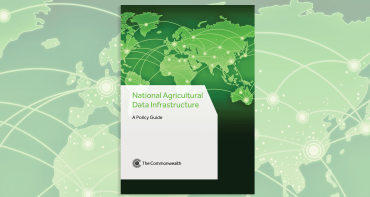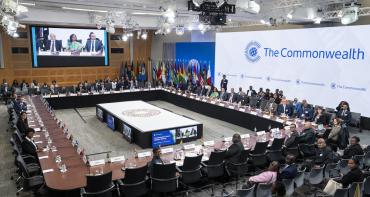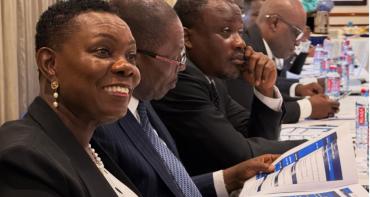In November 2017, Edmund Paul Kalekyezi, the National Trade Adviser to Guyana, presented a paper discussing why the country’s international trade treaties have not always brought about the desired results.

In November 2017, Edmund Paul Kalekyezi, the National Trade Adviser to Guyana, presented a paper discussing why the country’s international trade treaties have not always brought about the desired results.
Called “Legal Aspects of Guyana’s Trade Agreements (A Trade and Investment Relationship and Perspective)”, the paper charted the salient provisions of existing trade and investment agreements Guyana has reached with her international partners, as well as Guyana’s investment and international trade legal instruments.
As well as informing participants about the agreements, the paper provided insight into the performance of these agreements. It examined why Guyana’s international trade has not necessarily improved with countries it has signed trade agreements with, and why there is no evidence to show that increased investments have flowed into the country because of bilateral investment treaties, despite Guyana signing diverse trade and investment agreements and enacting conducive investment legislation.
Mr Kalekyezi discussed multiple factors affecting investment flows and consequently Guyana's international trade, that include:
- lack of adequate infrastructure to facilitate trade, including communication networks, the financial services market, testing and laboratory services
- socio-political issues, including political agreement on economic matters, human resource development as it relates skills and labor supply
- the high production costs, especially energy, that make the final products less competitive in international markets
- regulatory issues related to sanitary and phyto-sanitary (SPS) and other technical barriers to trade measures in the export markets that are restrictive, and
- local investors' mindset, which can make them reluctant to venture into other markets
By exploring whether bilateral trade and investment agreements necessarily increase trade, participants were enlightened on how to utilise the agreements in order to diversify and grow Guyana’s export products and markets.
Emphasis was put on preferential provisions of the agreements intended to encourage more Guyana exports into regional and international markets, as well as provisions in the bilateral investment agreements and legislation designed to boost investor confidence and ultimately increase investment flows. Other factors affecting investment flows were also discussed, since trade and investment agreements do not operate in a vacuum.
The paper presented by the Trade Adviser was part of a five-day workshop on Guyana’s Economic Diplomacy and Bilateral Trade organized by the Foreign Service Institute of the Ministry of Foreign Affairs, in conjunction with the Canadian Executive Service Organisation.
Participants were drawn from both the private sector and the government agencies involved in domestic and international trade, and investment promotion. The broad focus of the workshop was international trade negotiations, including best practices and useful tips for successful trade negotiations. Participants were also exposed to an overview of Guyana’s existing trade and investment agreements, and a deep analysis of some of these agreements. The relationship between trade negotiations and business and trade opportunities was also discussed.
Considering that economic diplomacy is the cornerstone of the government’s vision for the country, the focus of the workshop was especially relevant.
Both public and private stakeholders showed interest in the paper and it has raised awareness that Guyana’s preferential agreements are an important element of trade policy that once properly understood can encourage and generate economic growth and development.



